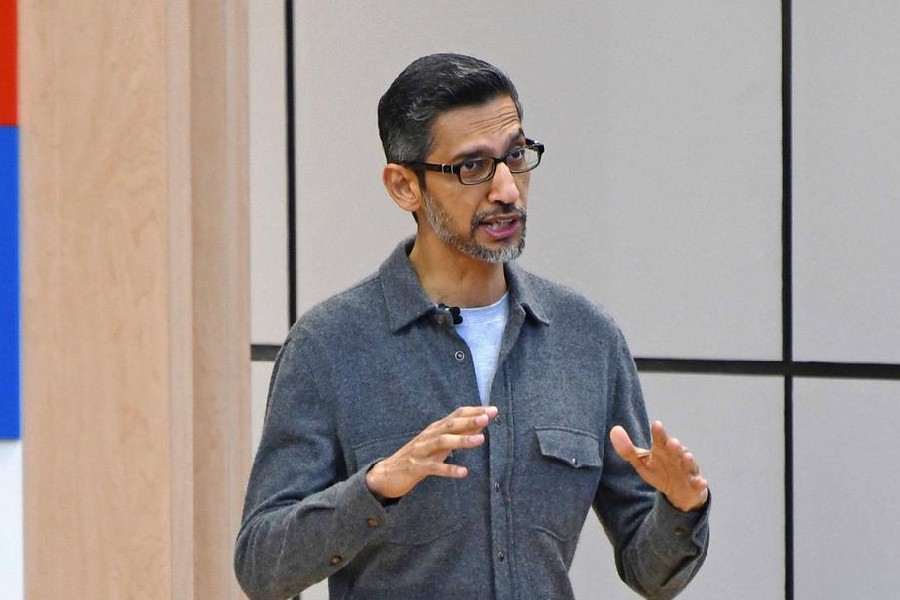Sundar Pichai, head of Google's parent firm Alphabet, has urged users not to "blindly trust" everything artificial intelligence (AI) tells them, while warning that no company would be immune if the AI investment bubble were to burst.
Speaking exclusively to the BBC, he described the growth of AI investment as an "extraordinary moment," but acknowledged there was some "irrationality" in the current boom.
"This is why people also use Google search, and we have other products that are more grounded in providing accurate information," Pichai said, emphasising the importance of balancing AI with other tools.
He noted that while AI tools are helpful “if you want to creatively write something,” users must “learn to use these tools for what they’re good at, and not blindly trust everything they say.”
Pichai highlighted that AI models are "prone to errors," and said Google’s introduction of an “AI Mode” into search using its Gemini chatbot aims to provide an expert-like experience while delivering more accurate information.
“We take pride in the amount of work we put in to give us as accurate information as possible, but the current state-of-the-art AI technology is prone to some errors,” he added.
Asked whether Google would be immune to a potential AI market downturn, Pichai said the tech giant could weather the storm but warned, "I think no company is going to be immune, including us."
Reflecting on past investment cycles, he added, "We can look back at the internet right now. There was clearly a lot of excess investment, but none of us would question whether the internet was profound. I expect AI to be the same. So I think it's both rational and there are elements of irrationality through a moment like this."
Pichai also noted that Google’s strategy of owning its full technology stack—from chips to YouTube data, models, and frontier science—positions it better to navigate market turbulence.
Alphabet’s AI superchips, which compete with Nvidia, and its investments in OpenAI partnerships, highlight the company’s strong foothold in the sector.
The CEO addressed the broader implications of AI, including its energy demands, which accounted for 1.5 per cent of global electricity consumption last year.
“You don't want to constrain an economy based on energy, and I think that will have consequences,” he said, stressing the need for new energy sources and infrastructure.
AI’s energy use has slowed progress on Alphabet’s climate targets, but Pichai reaffirmed the company’s commitment to achieving net zero by 2030. “The rate at which we were hoping to make progress will be impacted,” he said.
On the impact of AI on jobs, Pichai called it "the most profound technology" humankind has worked on.
“We will have to work through societal disruptions,” he said, adding that AI will also "create new opportunities."
He explained, “It will evolve and transition certain jobs, and people will need to adapt. Those who embrace AI will do better. It doesn't matter whether you want to be a teacher [or] a doctor. All those professions will be around, but the people who will do well in each of those professions are people who learn how to use these tools.”
Pichai also highlighted Alphabet’s expansion in the UK, announcing a £5 billion investment in AI infrastructure and research over the next two years.
“We are committed to investing in the UK in a pretty significant way,” he said, noting that Alphabet plans to develop “state of the art” research at DeepMind in London and train AI models locally—a move officials hope will help position the UK as a leading AI power after the US and China.










